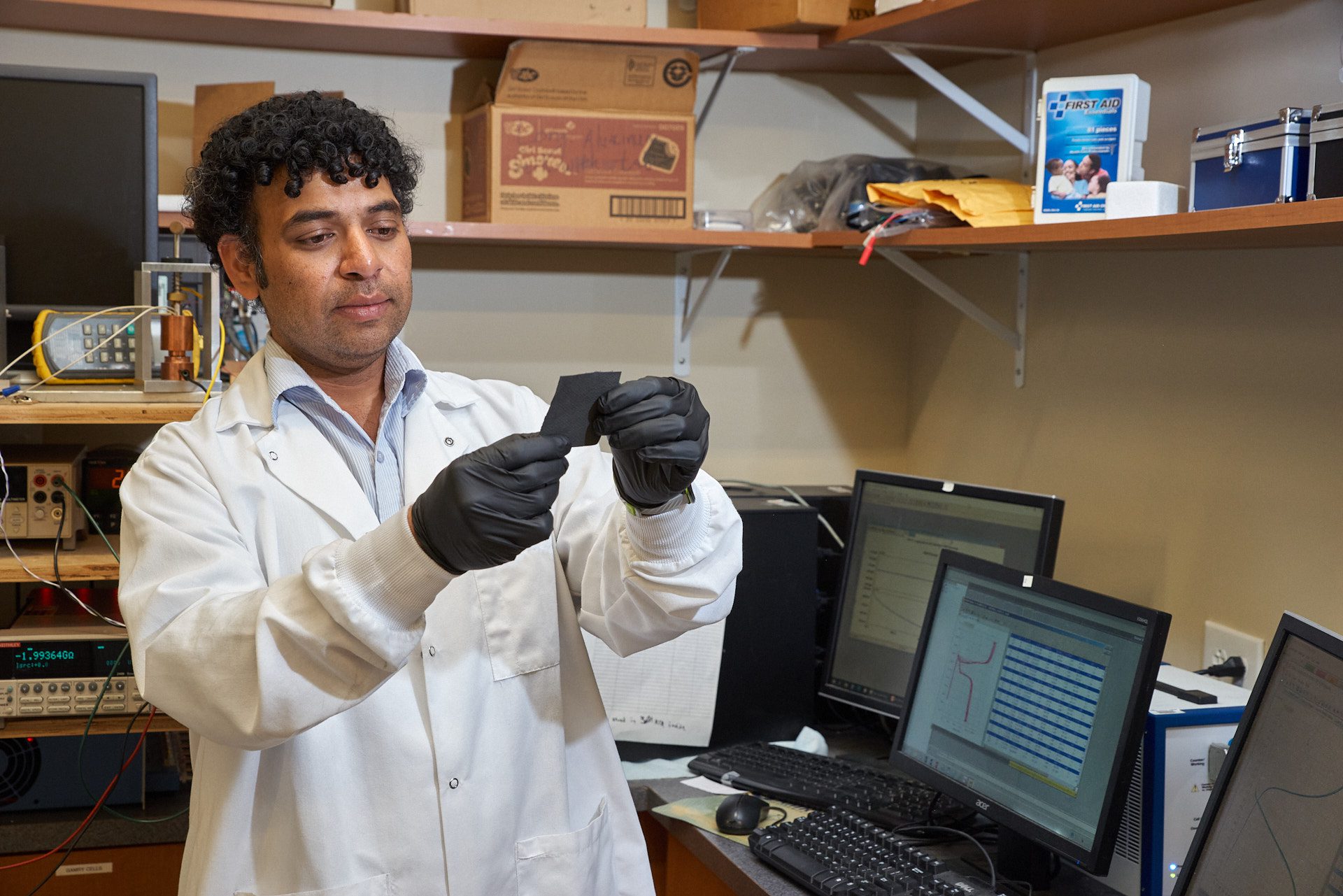CLEMSON, SC – In a remarkable recognition of his contributions to science, Ramakrishna Podila, a materials physicist at Clemson University, has been named a Fellow of the prestigious Institute of Physics. This honor underscores Podila’s influential role in advancing modern condensed matter and applied physics.
Immediate Impact
The Institute of Physics, a professional society headquartered in the United Kingdom and Ireland, boasts a membership of approximately 21,000 scientists worldwide. Podila’s election to this esteemed group highlights his significant achievements in the field.
“It’s an honor to be selected as a Fellow of the Institute of Physics,” Podila expressed. “Having a panel of peer reviewers who you do not know and with whom you have not collaborated telling you that you are deserving, is humbling.”
Key Details Emerge
Podila’s research is renowned for its interdisciplinary approach, merging physics, chemistry, biology, and materials science. His work has primarily focused on three critical areas:
- Energy conversion and storage
- Nano-bio interfaces
- Photonics and bioimaging
His groundbreaking contributions in nanoscience and nanobiophysics have led to the discovery of new fundamental phenomena in low-dimensional materials, with applications spanning energy, health, and photonics.
Pioneering Contributions
Podila has been at the forefront of research in energy storage, particularly with his development of next-generation supercapacitors and batteries. His work on triboelectric nanogenerators (TENG) has advanced the field of ambient energy harvesting.
“My group’s work has been very multidisciplinary. Physics is at its core, but we venture out into different areas, like energy, health, and optics,” Podila noted. “The boundaries between sciences are very blurred and not really relevant anymore.”
By the Numbers
21,000 members in the Institute of Physics worldwide
100+ publications authored by Podila
Top 1% of cited articles in materials chemistry
What Comes Next
Podila’s research group is now exploring new directions in quantum mechanics and quantum biology. “A lot of biology ignores quantum phenomena,” he said, highlighting the group’s focus on viral quasi-species to uncover quantum effects in biological environments.
“Quantum biology, I think, is going to be the next big thing,” Podila predicted. “I hope it starts a new body of work in applying quantum to how viruses replicate and, in general, that could have an impact on how evolution happens.”
Background Context
Podila’s research has garnered support from major government agencies, including the National Science Foundation, National Institutes of Health, NASA, and the U.S. Army. His work is also backed by numerous global companies.
He holds two U.S. patents and has received several accolades, such as the Roaring10 Award from the Clemson Young Alumni Council and the Rising Star in Discovery Award for the College of Science.
Expert Analysis
According to Podila, the integration of physics with other scientific disciplines is crucial for technological breakthroughs. “Look at any problems that have transformed the world, be it genetics or computing, all these revolutionary technologies, at the core, there was a physics person who picked up a non-physics problem and made a huge impact,” he stated.
His motto of “from discovery to device” encapsulates the transformative potential of his research.
The announcement of Podila’s fellowship is not only a personal achievement but also a testament to the impact of interdisciplinary research in pushing the boundaries of science.
